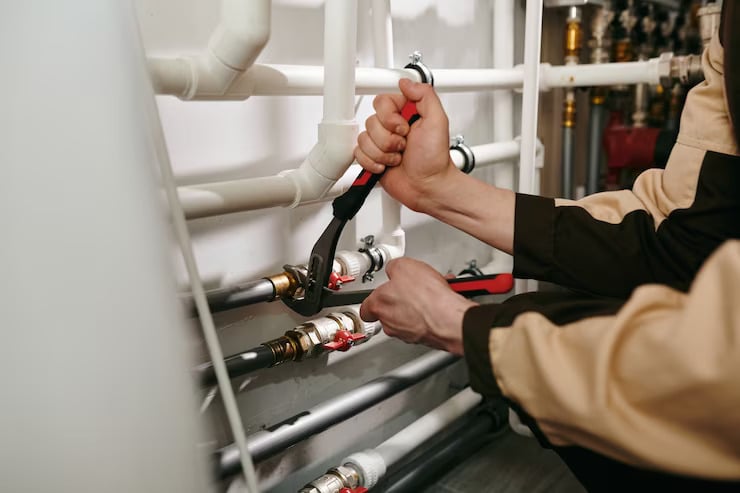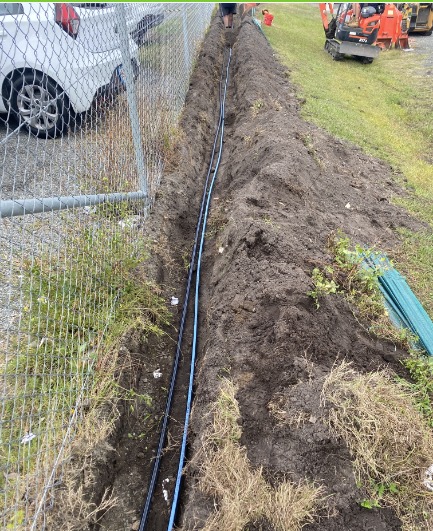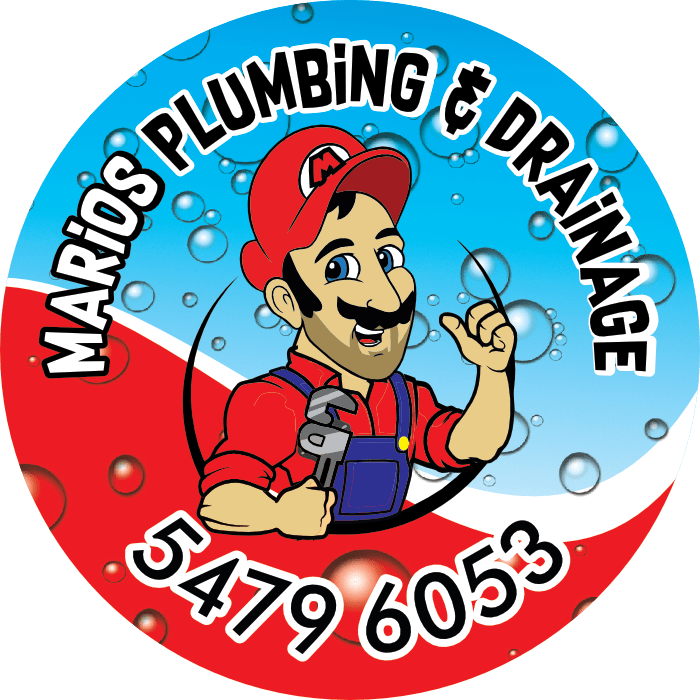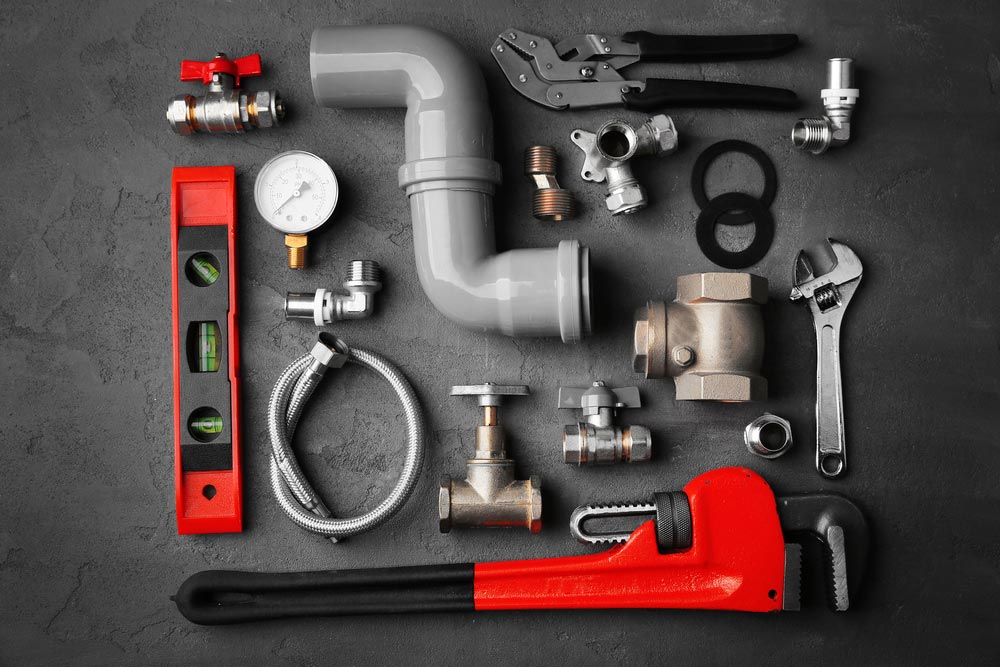When it comes to maintaining a smoothly running commercial property, few things are as critical as the plumbing system. From office buildings to retail spaces, restaurants to hotels, the demands on commercial plumbing are significant and diverse. However, with these demands come a host of potential issues that can disrupt operations and lead to costly repairs if not addressed promptly. Common issues in commercial plumbing systems often include problems such as leaks, clogs, and issues with water pressure. Leaks can arise from aging pipes, corrosion, or improper installation, leading to water damage and mold growth if not detected early. Clogs, whether in toilets, sinks, or main sewer lines, can cause backups and operational disruptions. Water pressure issues may stem from sediment buildup in pipes or problems with the water supply itself, affecting everything from restroom facilities to kitchen operations. Addressing these issues swiftly through regular maintenance and professional plumbing services is crucial to ensuring the smooth operation of any commercial property.
Top 5 Most Common Plumbing Issues in Commercial Buildings

Commercial buildings, from offices to retail spaces and industrial complexes, rely heavily on efficient plumbing systems to function smoothly. However, these systems are prone to specific issues due to their size, complexity, and the high volume of usage they endure. Identifying and addressing common plumbing problems promptly is essential to prevent disruptions, maintain hygiene standards, and avoid costly repairs. In this article, we’ll explore the top five most frequent plumbing issues encountered in commercial buildings, along with practical solutions to mitigate them.
Clogged Drains and Toilets
One of the most prevalent plumbing issues in commercial buildings is clogged drains and toilets. With numerous individuals using restroom facilities and kitchen areas daily, it’s common for debris, grease, and foreign objects to accumulate and obstruct drainage pipes. Signs of clogged drains include slow drainage, gurgling noises, and unpleasant odors emanating from sinks or floor drains. Regular maintenance is crucial. Implement scheduled drain cleaning services using appropriate tools like augers or hydro-jetting to clear blockages effectively. Educate employees on proper disposal practices to minimize the risk of clogs.
Leaking Pipes
Leaking pipes can cause significant damage if not detected and addressed promptly. In commercial buildings, leaks can occur due to aging pipes, corrosion, high water pressure, or even physical damage from construction or renovations. Left unchecked, leaks can lead to water damage to walls, ceilings, and flooring, as well as mold growth. Conduct regular inspections of plumbing systems to identify leaks early. Invest in leak detection technology that monitors water usage patterns and alerts maintenance teams to potential leaks. Replace worn-out pipes or fittings promptly to prevent further damage.
Malfunctioning Water Heaters
Commercial buildings often rely on water heaters to provide hot water for restrooms, kitchens, and other facilities. Issues with water heaters can disrupt daily operations and impact employee and customer comfort. Common problems include insufficient hot water, fluctuating temperatures, or complete failure to heat water. Schedule routine maintenance for water heaters, including flushing tanks to remove sediment buildup and inspecting heating elements for signs of wear. Consider upgrading to energy-efficient models to reduce energy costs and improve reliability.
Low Water Pressure
Low water pressure can affect various areas of a commercial building, including sinks, showers, and toilets. It can be caused by several factors, such as mineral buildup in pipes, leaks, or issues with municipal water supply. Identify the root cause of low water pressure through thorough inspection. Clean or replace clogged faucet aerators and showerheads. Address any leaks promptly and consider installing pressure-boosting devices if necessary. Coordinate with local water authorities to investigate issues with the municipal water supply.
Running Toilets
Running toilets are not only annoying but also wasteful. In commercial settings, where multiple toilets are in use, a running toilet can lead to excessive water consumption and increased utility bills. Check toilets regularly for signs of running water, such as continuous sounds of water running or periodic refilling of the tank. Replace worn-out flapper valves or other components causing the issue. Educate maintenance staff and occupants on reporting and addressing running toilet problems promptly.
The Role of Professional Plumbers in Maintaining Commercial Buildings

Commercial buildings house businesses, offices, and institutions that rely on efficient plumbing systems for daily operations. From restroom facilities to kitchen areas and utility rooms, the plumbing infrastructure in these buildings must function flawlessly to ensure sanitation, convenience, and compliance with safety standards. The role of professional plumbers in maintaining commercial buildings extends beyond simple repairs; it involves expertise in system design, preventive maintenance, compliance with regulations, and ensuring the longevity of plumbing components. In this article, we explore the crucial role that professional plumbers play in maintaining and optimizing plumbing systems within commercial buildings.
System Design and Installation
Professional plumbers are integral to the initial design and installation phases of plumbing systems in commercial buildings. They collaborate with architects, engineers, and contractors to ensure that the plumbing layout meets the specific needs of the building and complies with local building codes and regulations. This includes determining the placement of pipes, fixtures, water heaters, and drainage systems to optimize functionality and efficiency.
Preventive Maintenance Planning
Preventive maintenance is key to minimizing unexpected plumbing issues and costly repairs in commercial buildings. Professional plumbers develop comprehensive maintenance plans tailored to the unique requirements of each building. This includes regular inspections, testing of valves and pressure levels, cleaning of drains and sewer lines, and checking for leaks or signs of wear in pipes and fittings. By implementing preventive maintenance schedules, plumbers help extend the lifespan of plumbing systems and reduce downtime.
Emergency Repair Services
In the event of plumbing emergencies such as burst pipes, severe leaks, or malfunctioning water heaters, professional plumbers provide timely and effective repair services. They have the expertise and tools necessary to assess the situation quickly, mitigate damage, and implement immediate repairs to restore normal operations. Emergency response capabilities are crucial in commercial settings where any disruption to plumbing systems can impact business operations and occupant comfort.
Compliance with Regulations and Standards
Commercial buildings must adhere to various plumbing codes, regulations, and standards set forth by local authorities and regulatory bodies. Professional plumbers possess in-depth knowledge of these requirements and ensure that all plumbing installations and repairs meet or exceed regulatory standards. This includes proper installation of backflow prevention devices, adherence to pipe sizing guidelines, and compliance with water efficiency and sanitation protocols.
Upgrading and Retrofitting Plumbing Systems
As technology advances and building usage evolves, professional plumbers play a vital role in upgrading and retrofitting plumbing systems in commercial buildings. This may involve replacing outdated fixtures with water-efficient models, upgrading water heaters to improve energy efficiency, or integrating smart technologies for monitoring and controlling water usage. Plumbers assess the feasibility of upgrades, recommend cost-effective solutions, and ensure seamless integration with existing plumbing infrastructure.
Dealing with Emergency Plumbing Situations in Commercial Buildings
Emergency plumbing situations in commercial buildings can disrupt operations and lead to significant damage if not addressed promptly. Being prepared to handle such emergencies is crucial for minimizing downtime, preventing property damage, and ensuring the safety and comfort of building occupants. In this guide, we’ll outline important steps and key points for effectively dealing with emergency plumbing situations in commercial settings.
- Immediate Assessment: Quickly assess the severity of the plumbing emergency, such as burst pipes, major leaks, or sewer backups, to determine the appropriate response.
- Shut Off Water: Locate and shut off the main water supply to prevent further damage. Ensure that all employees are aware of the location of shut-off valves.
- Contact Professional Plumbers: Immediately contact a licensed and experienced commercial plumber who can respond to emergencies and provide expert repairs.
- Containment and Mitigation: Use containment measures such as buckets, towels, or tarps to minimize water damage while waiting for professional help.
Conclusion
Understanding and addressing common issues in commercial plumbing systems is crucial for maintaining the smooth operation of businesses. Whether it’s dealing with blocked drains, leaking pipes, or faulty water heaters, prompt action and professional intervention are essential to minimize disruptions and prevent potential damage to property and business operations.
At Mario’s Plumbing and Drainage, located in the Sunshine Coast, Queensland, we specialize in resolving these issues efficiently and effectively. With years of experience serving businesses across the region, our team is dedicated to delivering reliable plumbing solutions tailored to meet the unique needs of commercial clients. For prompt assistance with any plumbing concerns, don’t hesitate to contact us at 07 5479 6053 or visit our website for more information on our services. Trust Mario’s Plumbing and Drainage to keep your commercial plumbing systems running smoothly, so you can focus on what matters most – running your business.


